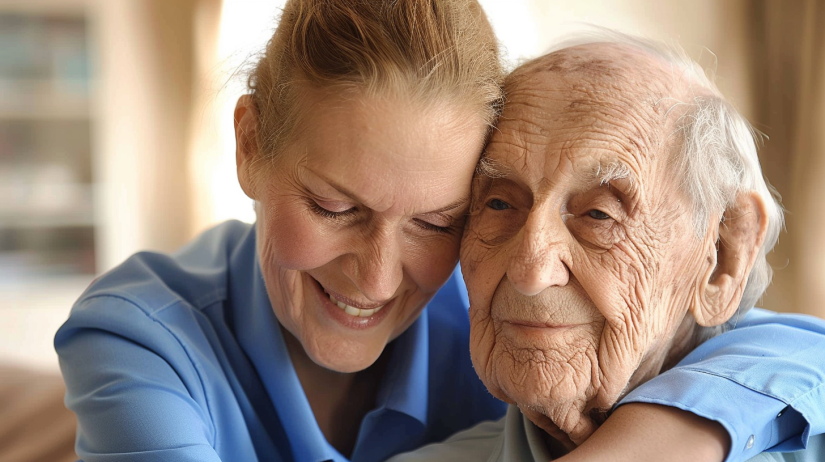Caregiver Training Tips are essential tools that empower caregivers to confidently deliver high-quality care. Whether you’re a family caregiver or an aspiring professional, learning the best
caregiver training tips will elevate your approach and skills. These
insider caregiver training tips cover everything from effective communication techniques to managing stress and specialized caregiving strategies that address common challenges in care.
1. Why Caregiver Training Matters
Caregiver training is vital in building confidence and ensuring that caregivers meet both the physical and emotional needs of those in their care. This training enhances skills, provides stress-management techniques, and improves outcomes.
Placeholders for Related Internal Links:
- Link opportunity for “importance of caregiver training” post
- Link opportunity for “impact of effective training on caregiver burnout”
2. Key Training Focus Areas in Caregiving
Understanding Patient Needs
Caregivers benefit from training that helps them understand the unique needs of individuals with chronic conditions, disabilities, or cognitive changes associated with aging.
Communication Skills
Training programs should emphasize verbal and non-verbal communication techniques. Improving caregiver communication with patients enhances trust and comfort.
Safety and Emergency Response
Safety training in caregiving, such as how to lift or transfer patients and respond to emergencies, is essential for minimizing risks to both caregivers and those they care for.
3. Top 10 Insider Caregiver Training Tips to Build Confidence and Skills
Tip 1: Begin with Compassionate Care Basics
Compassion-focused caregiving builds stronger bonds between caregivers and patients, and is foundational to caregiving success. Simple acts of empathy can greatly improve a patient’s experience.
Tip 2: Establish a Consistent Routine
Caregivers and patients both benefit from daily routines. Structure and predictability reduce stress and improve care quality.
Tip 3: Develop Active Listening Skills
Active listening enables caregivers to better understand patient needs and fosters a stronger connection. Techniques include paraphrasing and using non-verbal cues to convey attentiveness.
Tip 4: Practice Mindfulness to Manage Caregiver Stress
Mindfulness practices help caregivers stay focused and calm, reducing stress over the long term and enhancing their caregiving presence.
Suggested External Resource:
Mindful.org – Mindfulness Techniques for Caregivers
Tip 5: Learn Safe Lifting and Mobility Techniques
Caregivers must understand proper lifting techniques to prevent injuries. Lifting and transferring patients requires training to ensure the safety of both parties.
4. Advanced Strategies for Skill Building
1. Specialized Training in Dementia and Alzheimer’s Care
Specialized training in dementia care prepares caregivers to manage challenging behaviors, reduce agitation, and create supportive environments tailored to memory care needs.
2. Using Assistive Technology to Enhance Care
Caregivers who embrace technology, like medication reminders and monitoring tools, can streamline caregiving tasks and improve patient monitoring.
3. Continuous Education on Health Trends
Caregivers who stay updated on health trends and research bring valuable insights into their caregiving roles, applying new knowledge to improve patient care.
Suggested External Resource:
Aging and Disability Resource Center (ADRC)
5. Overcoming Common Challenges in Caregiving
Preventing Caregiver Burnout
Caregiver burnout is a prevalent issue, affecting mental and physical well-being. Regular breaks, support groups, and professional mental health support help combat this issue.
Suggested Video Placeholder: A video exploring “Managing Burnout in Caregiving.”
Balancing Work and Personal Life
Effective boundaries and support networks help caregivers juggle personal responsibilities alongside caregiving tasks.
6. Resource List for Further Caregiver Training
- Online Courses in Caregiving
Affordable and free online courses on sites like Coursera provide valuable training for caregivers looking to expand their skills.
- Local Support Groups
Support groups offer emotional support and shared learning experiences for caregivers, as well as networking opportunities.
- Professional Certifications
Caregivers who pursue certifications, like those from the National Association of Home Care and Hospice, can advance their skills and career prospects.
Conclusion
Learning and applying
caregiver training tips is a powerful way to enhance both the caregiver’s and patient’s quality of life. From foundational skills to advanced techniques, these insider caregiver training tips offer tools to help caregivers feel more prepared and supported, ultimately creating a more rewarding caregiving experience.
Disclaimer: The content provided on this blog post is for informational purposes only and is not intended as medical advice, diagnosis, or treatment. We are not responsible for any actions taken based on the information provided in this blog. Always seek the advice of a qualified healthcare provider with any questions regarding a medical condition.








0 Comments